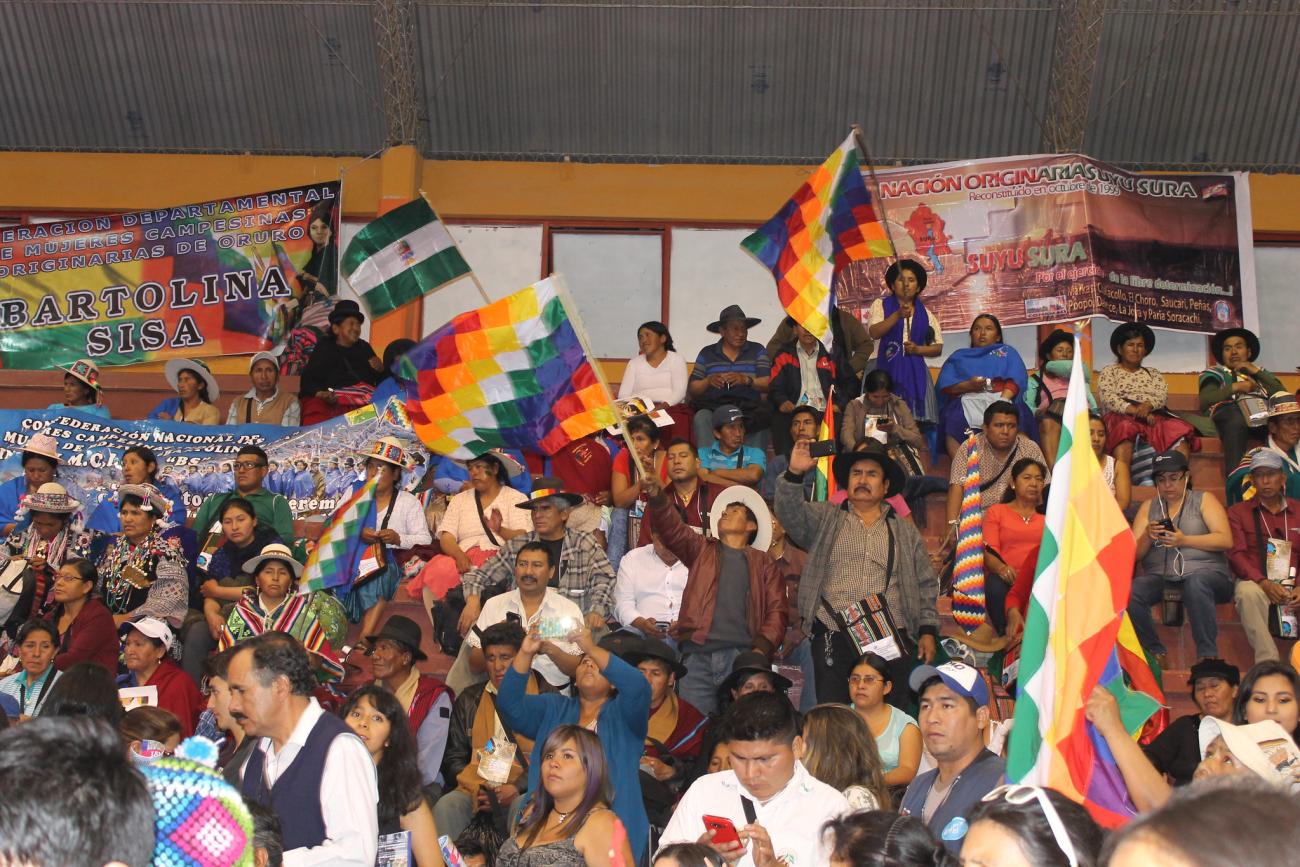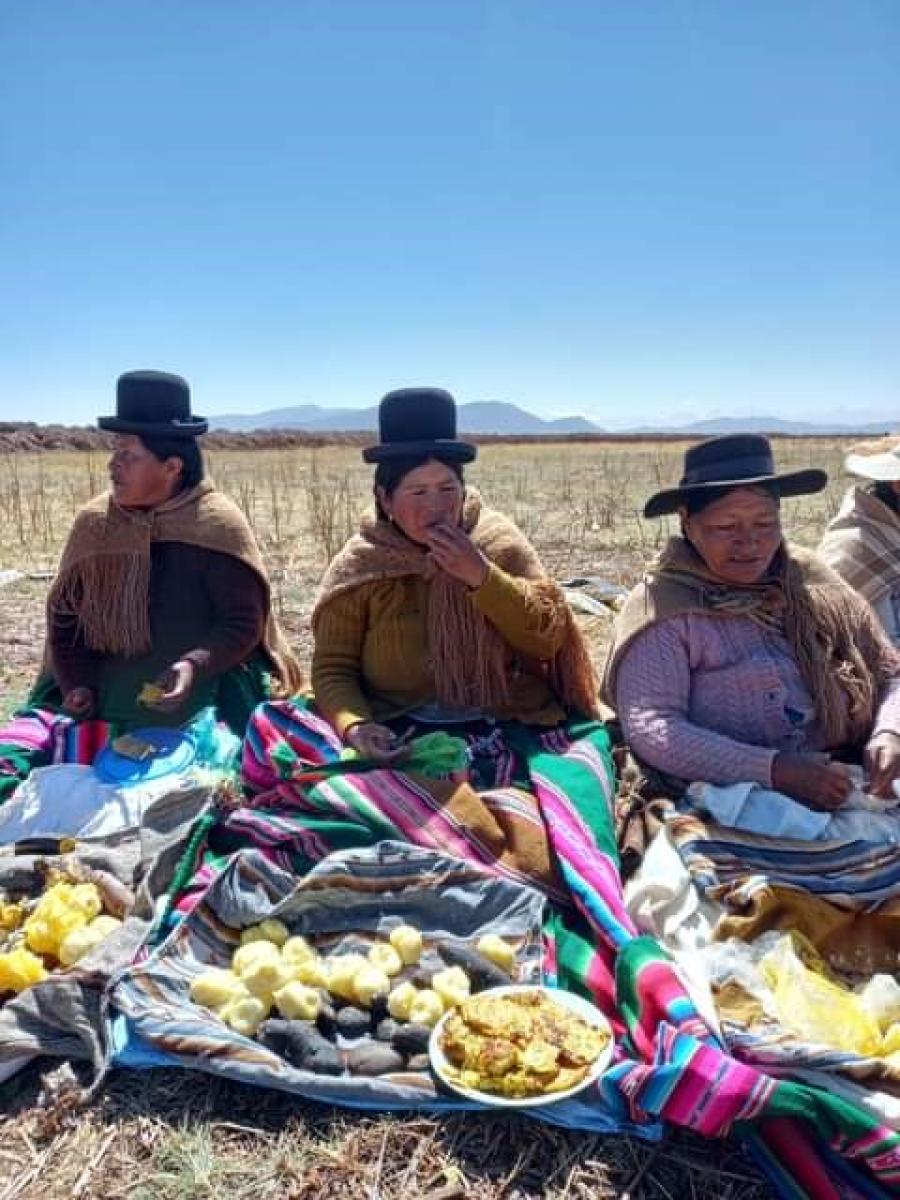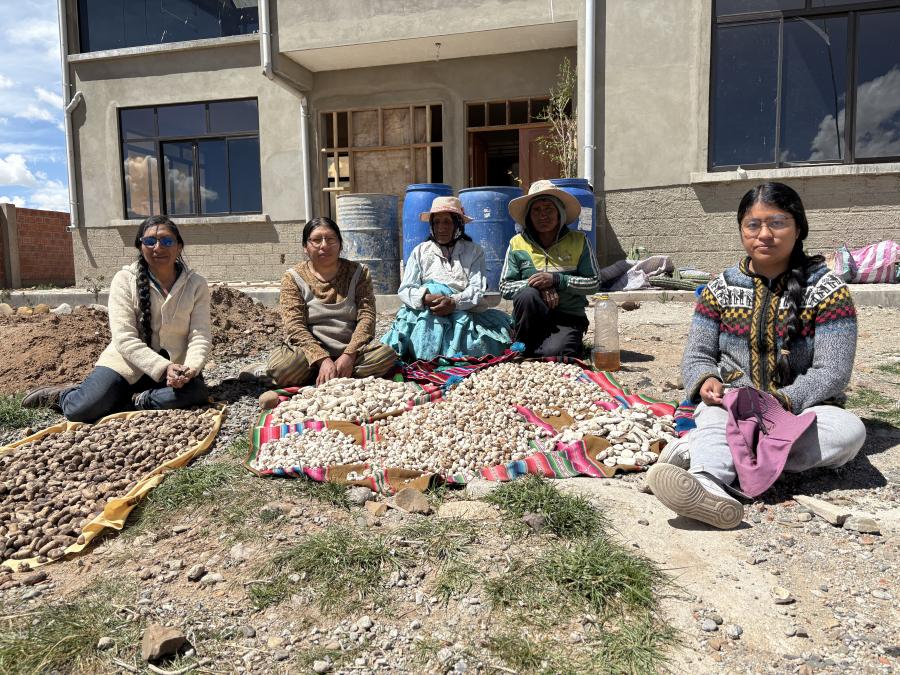
By Rebecca Kirkpatrick (CS Intern)
Over 500 people from 34 Indigenous communities in six departments in Bolivia—Beni, Santa Cruz, Pando, Tarija, Chuquisaca, and La Paz—marched over 300 miles to demand respect for Indigenous land, culture, and dignity. The group, which started in Trinidad, the capital of the department of Beni, with 150 members on August 25, 2021, arrived in Santa Cruz 37 days later, on September 30. They walked to Santa Cruz seeking a meeting with President Luis Arce and Vice President David Choquehuanca, as well as the highest authorities from the four branches of the Bolivian government: executive, legislative, judicial, and electoral.
“We have sent the third letter of invitation to the national government to meet with us at the level we deserve,” stated Marcial Fabricano ( Mojeño-Trinitario), the leader of both this march and the very first Great Indigenous March for Territory and Dignity back in 1990. The march in 1990 involved around 300 people and grew in size over the course of the 34 days it took to walk from Beni to La Paz, a distance of nearly 400 miles.
Upon receipt of the first letter from the group, Remy Gonzáles, Minister of Rural Development and Lands, invited them to a meeting with the Vice-Ministers of Citizen Security, Coordination with Social Movements, and the head of the Indigenous Autonomies Unit, but this meeting has not yet taken place.
“In 1990 we knocked on the door of the Bolivian State,” said Fabricano. “Now, in 2021, we are again knocking on the door of the State of Bolivia for our territory, our identity, and our culture.”
The group has a list of 15 demands to present to the government, which includes the demand for respect for their lands and cultures, which are currently under threat from increasingly violent encroachments by intercultural groups connected to the Movimiento al Socialismo (Movement for Socialism), the political party currently in power in Bolivia. The lands of Indigenous Peoples in Bolivia are also threatened by mining cooperatives and drug trafficking operations, particularly due to agreements such as the one between the National Service of Protected Areas (SERNAP) and the Mining Administrative Jurisdictional Authority (AJAM), which authorizes mining activities in areas that are under environmental protection.
“Currently, the 34 nations of the Amazon, Oriente, and Chaco do not feel included or represented in the Legislative Body of the Plurinational State,” the document listing the group’s demands states. “On the contrary, our struggles and demands have ended up benefiting other sectors that today subjugate our territories, burn our forests, and fracture our organizations and cultural identities.”
“We demand that the United Nations, international aid organizations, the Plurinational State of Bolivia itself, the national, departmental, and municipal governments, and the population in general, respect, and are made to respect, our right to self-determination in our territories,” the document continues. “We are not seeking division, on the contrary, we march and fight for unity, for respect for all forms of life, for the care of the forests that are sources of life, fresh water, and oxygen.” In addition, they are asking for the creation of an Indigenous fund, health and education services, and the abolition of laws and practices that are negatively affecting their land. One such practice is that of setting “controlled” forest fires, which often grow out of control and then require substantial funds to put out.
“Stop destroying the forests and biodiversity,” the group pleads in their document, “with deforestation, timber extraction, forest fires, extractive megaprojects (mining of rare minerals, gold, gas), agribusiness, livestock; the only thing this is achieving is the destruction of life, causing droughts, floods, and sudden changes in temperature that are referred to as “natural disasters,” when in truth they are causing human disasters.”
Given the lack of response from the government—likely due to the fact that many of the group’s demands are in direct opposition to government interests—Abdón Justiniano, president of the Center for Indigenous Peoples of Beni, confirmed that the group has now called upon international organizations such as the United Nations, the Inter-American Commission on Human Rights, the Organization of American States, and others to facilitate the dialogue between those who marched and the government.


